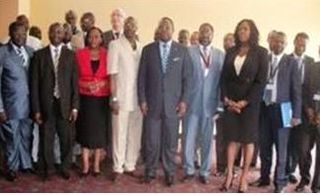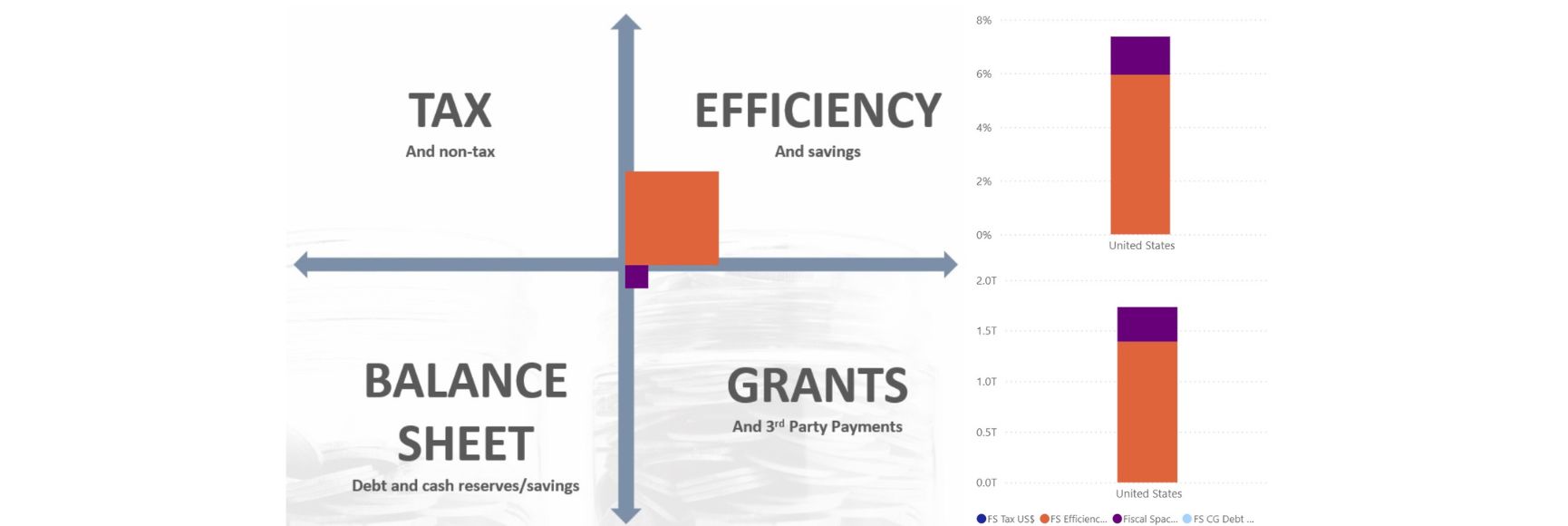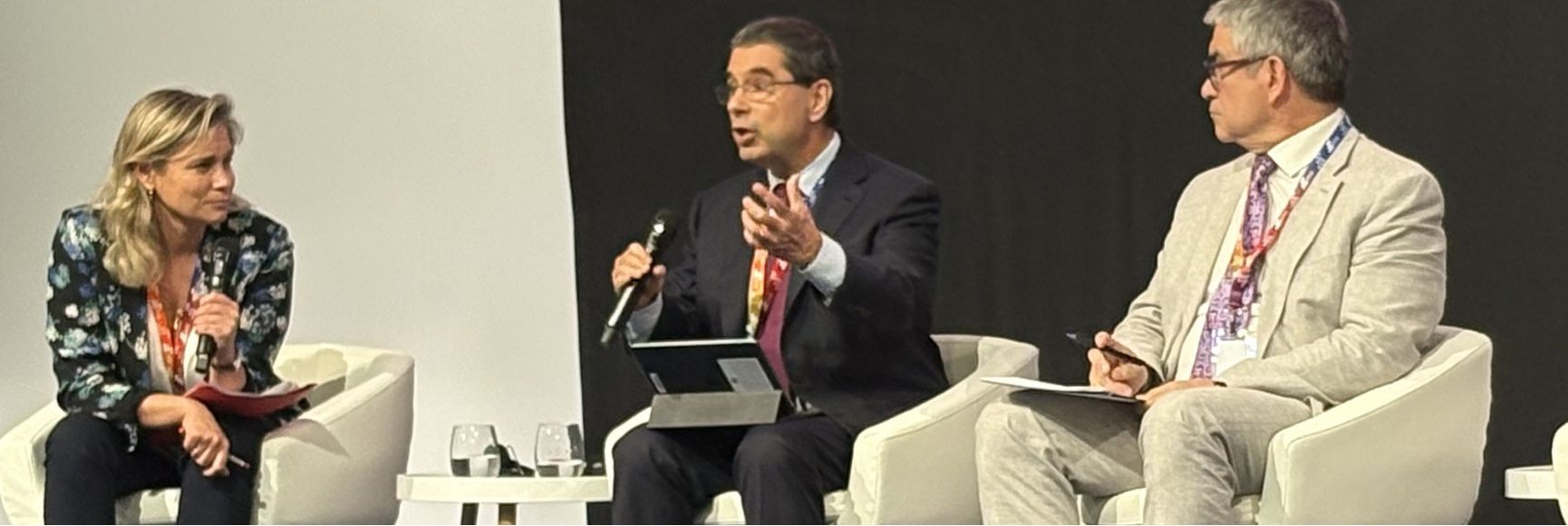Posted by Abdoulahi Mfombouot

The Second Forum of Senior Budget Officers of Central AFRITAC (AFC) Member States (MS) was held on January 9–13, 2012 in Libreville, Gabon and addressed the theme of Budget Reform: An International Dynamic to the Benefit of Government Action.
The delegates from all the MSs and the representatives of the principal TFPs[1] that work in public financial management (PFM) took part in the event. The public finance directors from the WAEMU and CEMAC attended as well. The Gabonese Budget Minister chaired the forum’s opening and closing ceremonies, preceded on both occasions by the AFC Director. The World Bank Resident Representative in Gabon addressed the forum’s closing session on behalf of all the TFPs.
At the conclusion of the exchanges, the delegates prepared the general summary of their work and elected a new executive bureau chaired by Mr. Yves Fernand Manfoumbi, Director General of the Budget for Gabon, and the Vice Chairman, Mr. Aboubakar Malloum Goni, Director General of the Budget for Chad. Mr. Abdoulahi Mfombouot was appointed Technical Secretary of the FHFB. In addition, an action plan was adopted for the coming year. The third forum is scheduled for January 2013 in N’Djamena, Chad.
CONTEXT
The FHFB was founded on September 30, 2010 in 2010 in Brazzaville, Congo, at a meeting of budget professionals organized by the AFC. The purpose of this meeting was to provide a platform for exchanges between MSs and sharing of experiences in the area of budgetary reform. At the conclusion of the work, the participants, pleased with the results of the forum, unanimously adopted the “Brazzaville Declaration,” making the forum permanent. At the same time, they prepared draft bylaws and internal regulations that were subsequently adopted at the February 2011 special session in Douala, Cameroon, on the sidelines of the CEMAC directives validation workshop. These founding instruments specify that AFC will serve as technical secretariat for the forum.
OBJECTIVES OF THE SECOND FHFB
The general objective of the meeting was to strengthen the dynamic of exchanges and experiences, and in particular: (i) to learn initial lessons about the forum’s operations and prepare the work for the coming months to bolster its action; (ii) to share the experiences of each MS in modernizing budgetary management; (iii) to take ownership of the good practices and international standards on the themes that were addressed; and; (iv) to seat the new FHFB Executive Bureau.
OPENING CEREMONY
The opening ceremony featured two addresses: the AFC Director discussed the creation of the FHFB and the principal activities conducted by AFC as technical secretariat for the forum; the Gabonese Budget Minister addressed the challenges and issues faced by the FHFB, stressing the need to lay the groundwork for lasting, mutually beneficial cooperation among the MSs, in particular to adopt and communicate to the MSs a program of activities for the coming year. He also took the opportunity to discuss the status of budgetary reforms in Gabon.
THE PROCEEDINGS
The work per se focused on four principal themes:reform of the legal framework and the strategy for implementing the reforms; reform of budgetary management methods; budgetary policy to promote development; and technical assistance for the MSs.
THEME 1: REFORM OF THE LEGAL FRAMEWORK AND IMPLEMENTATION STRATEGY
Six presentations addressed this theme, followed by discussions that furnished additional lessons of interest.
1.1. The CEMAC directives
Adopted on December 19, 2011, these directives are in line with good practices and international standards. They give the MSs two years to transpose the directives into national law and gradually implement them over eight years or even ten years for certain the provisions. Successful implementation requires: (i) increased awareness on the part of all actors; (ii) the active involvement of all MSs; (iii) a coordinated approach among the MSs; (iv) ongoing political support at the highest level; and (v) support from the TFPs.
1.2. The LOLF, the French Framework Law on Budget Laws: ten years after adoption and five years of implementation
The presentation highlighted the principal lessons from the French experience, in particular the need for: (i) engagement at the highest level (political support) throughout the reform process; (ii) training for public managers in the culture of accountability; (iii) training in the ministries for all employees, regardless of level; (iv) the use of experiments to take ownership of the reform; (v) good external and internal communication; (vi) use of a calendar to launch the project; (vii) gradual implementation of reform; and (viii) considering long-term challenges: the political, administrative, cultural, and technical challenges.
1.3. Governance of public finance reform in the DRC
The reform in the DRC is based on several key pillars:(i) political direction by the government; (ii) technical management by a dedicated entity (COREF, the Committee for Public Finance Reform); (iii) a comprehensive seven-year reform strategy accompanied by a rolling three-year action plan; (iv) a reform led by the authorities; (v) a framework for dialogue with the TFPs; and (vi) a monitoring-evaluation system.
1.4. Workshops
Workshop 1: Relations between the budgetary authorities and the sector ministries
The conclusions of this workshop stressed the following recommendations: (i) promote an approach of dialogue and cooperation with the authorities (top-down/bottom-up); (ii) encourage gradual decentralization of the payment authorizing officer’s role and greater responsibility for managers; (iii) implement a support and information system in the ministries, primarily by establishing correspondents or focal points; (iv) adopt a standing budget calendar that can be adjusted as required; (v) increase the sector ministries’ interest in the budget preparation process; and (vi) facilitate the budget execution process in the finance units.
Workshop 2: Involve civil society in the budget process
The exchanges led to the following conclusions: (i) civil society’s participation in the budgetary process has become a necessity for the States; (ii) certain MSs are already experimenting with this approach, for example, the participatory process of the NSDP and Cameroon’s experience with participatory management of the public investment budget; (iii) civil society budgetary capacities must be strengthened; and (iv) a standing discussion forum on budget-related issues should be established.
Workshop 3: Promote an executive master’s program on modernizing PFM and results-based budgeting
After a review of the draft terms of reference, the workshop participants deemed this initiative essential to the transition to the second-generation reforms. However, they felt the AFC should contract an expert study to finalize the document and incorporate the following recommendations: (i) revitalize the traditional training provided by national business schools and other training centers, and promote the links between these schools/centers and the universities; (ii) move toward an executive as opposed to a traditional master’s degree, with modules and a report; (iii) organize the program so that participants need not leave their positions during the course; (iv) enlist the support of the TFPs (in addition to the traditional partners such as the African Capacity Building Foundation (ABCF)); (v) begin with one or two training schools in the subregion, selected based on their expertise in this area; (vi) acquaint MS finance and budget ministries with the merits of the program; and (vii) prepare standard training modules and involve both practitioners and academics in the training.
1.5. Difficulties implementing the reforms and a few avenues for solutions (World Bank)
Communication has concentrated on the prerequisites for the reformswith emphasis on a favorable environment (consensus of the political authorities, a political project for modernizing the government, the Budget Ministry’s ability to manage implementation of the reform and mobilize all the government agencies) and a political economy for the reform: assess the status quo to identify potential technical difficulties in implementation.
Communication also identified several key factors for success, in particular the need to: (i) transpose the directives into all the official languages of the MSs; (ii) internalize the reform (ownership of the reform by the internal actors and making the legal framework consistent); (iii) design an implementation strategy; and (iv) sequence the implementation.
1.6. Approach to and issues for the harmonization of legal, accounting, and statistical frameworks for public finance in the WAEMU
The implementation of the new WAEMU directives is moving forward, but some difficulties are slowing the process down. After the adoption in June 2009 of the new directives that promote the second-generation reforms, a reform support program was put in place in December 2009. Active involvement by the MSs and widespread acceptance and support from the TFPs were essential in the adoption and implementation process.
However, a number of difficulties were encountered, including the MSs’ failure to meet the transposition deadline, and conflicts between certain of the directives’ provisions and national constitutions, requiring the constitutions to be amended first.
THEME 2: REFORM OF MANAGEMENT METHODS
The following seven themes were addressed:
2.1. Budget control using the French LOLF method
The highlights of the development of budgetary control in France are: (i) refocusing control on budget sustainability; (ii) maintaining the approval on the legal obligations, but basing them henceforth on risks, with a financial limit (5 to 10 percent of the acts); (iii) instituting an opinion on forward-looking management documents; (iv) a control of jobs in terms of both numbers of jobs and wage bills; and (v) creating a single authority (budgetary and accounting) in the ministries, the CBCM (budgetary controller and ministerial accounting officer).
In terms of the outlook for changes in control, there are plans: (i) to establish an internal budget control in each ministry and internal control committees; (ii) to make a clear distinction between the inspection and internal control functions; and (iii) to streamline and refocus audits on issues and risks.
2.2. Gabon’s experience in structuring budget programs
With this presentation, the participants came to realize that the programs, as a framework for implementing public policies, cannot be decreed; there must be a participatory process. After the initial incomplete programs, Gabon recently resumed the work and focused it on: (i) gradual implementation, beginning with four pilot ministries; (ii) a better grasp of the concepts of missions, programs, and actions, and the principles that support their development; (iii) reinstating and strengthening the project team; and (iv) the strong engagement of the ministries and the establishment of ministerial project teams.
The next stages in implementing the program budget include plans to: (i) gradually expand the program structuring experiments to other ministries beginning in March 2012; (ii) prepare the performance approach in the four pilot ministries, begun in October 2011; and (iii) study progress in adjusting the information system.
2.3. The Congolese experience in deconcentrating the expenditure chain
Although it is executed with a single payment authorizing officer, the deconcentration of the Congolese budget has begunin procurement, commitment, and verification of expenditures and financial control. The assistant payment authorizing officer (the Director General of the Budget) is in charge of payment authorization along with his representatives depending on the limits. Other activities are also being carried out to streamline the expenditure chain, including the preparation of a nomenclature for documents that substantiates expenditures and setting deadlines for processing the documentation at each stage; organization of the different procedures for executing expenditures; and the establishment of the principle of multiple payment authorizing officers in the current draft law that transposes the CEMAC budget law directive.
2.4. Integrated PFM system (GESCO) in the CAR
The CAR established an integrated PFM system (GESCO) that consists of two integrated modules: Budget and Treasury. GESCO is upgradeable and can be interfaced with the other applications. A study is in progress to expand GESCO to the sector ministries. However, its performance is affected by the improper use of the exemption procedures and insufficient ownership.
The principal lesson learned is that the implementation of a suitable PFM system is a prerequisite for advancing to the second-generation reforms.This is the very backbone of these reforms.
2.5. Budgeting and execution of public investment expenditures in Equatorial Guinea
Several government entities are responsible for managing the public investment budget: the ministries of planning, infrastructure and finance, GEPROJETOS, and Agence 2020.The major investment projects underway in the different sectors are supported by the national development plan that the government adopted, and they consist of four thrusts and thirteen programs. The investment projects are financed through oil revenue. The authorities are aware of the recurring expenses that these investments generate.
2.6. Mobilization, budgeting, and monitoring the management of external financing in Chad
The system for mobilizing, budgeting, and monitoring external investments is still in the development phase. The government is experiencing considerable difficulties in harnessing the system, primarily because: many parties are involved with unclear roles; there is no national policy paper on assistance; a three-year public investment program does not exist; there are deficiencies in the data information and communication system on external financing; the budget calendar is not harmonized with the three-year investment program calendar; coordination among the TFPs is poor; and externally financed projects are insufficiently monitored.
Avenues for solutions under consideration: (i) uphold the Paris Declaration ; (ii) establish a standing exchange framework between the budget and planning ministries; (iii) adopt a national assistance policy paper; (iv) implement the neutral solution (CAS, FC) that the CEMAC directives propose; (v) jump-start the internal and external monitoring-evaluation arrangements and development programs; and (vi) accelerate the completion of the procurement reform.
2.7. Management of donor funds: the case of the SAB/JEF in Burundi
An initial experiment in managing donor funds through the Special Allocation Budget (SAB) was implemented in Burundi in 2010 by bringing together a group of TFPs that set up a Joint Education Fund (JEF) in an SAB. The education minister is the assistant payment authorizing officer and the funds are kept in a pivot account in the CUE with the Bank of the Republic of Burundi. The TFPs are included in scheduling and monitoring the implementation of the projects that the SAB/JEF finances.
This option, incidentally, is consistent with the new organic law and the General Regulation on Public Budget Management. It is an opportunity to deconcentrate the administrative phase of expenditures in the spending ministries and thus foreshadows the second-generation reforms. It is a compromise solution pending the complete changeover to budget supports in accordance with the Paris Declaration.
In terms of the outlook, there are plans to hire an auditor for two years and to interface SIGEFI with the TOMPRO software (SAB/JEF dedicated software) so that commitments need be entered only once, to put in place the HEALTH/SAB beginning in 2013, and to gradually expand it to other sectors starting in 2014.
THEME 3: LINKAGE BETWEEN THE NATIONAL DEVELOPMENT STRATEGY PAPER, THE SECTOR STRATEGIES, AND BUDGET PROGRAMMING
The issue of this linkage is a major challenge for the countries of Africa.It involves: (i) proposing a budget calendar that takes the strategy review and evaluation stages into account; (ii) ensuring that elements relating to evaluation/revision of the NSDP are incorporated into the achievement of the objectives; (iii) ensuring consistency between general and specific objectives of the NSDP/intra-sector allocation of resources; (iv) ensuring that sector strategies are translated rationally into budget priorities; (v) verify the relevance of the budget architecture (strategy/objectives/ ministries/sector); and (vi) assess outcomes based on results indicators and objectively measurable and verifiable targets.
THEME 4: THE ISSUE OF TECHNICAL ASSISTANCE IN THE MEMBER STATES
Difficulties in implementing technical assistance exist with the beneficiaries as well as the providers
For the beneficiaries the problems are: (i) poor capacities, unavailability, and the high mobility on the part of actors; (ii) reluctance to provide information; (iii) documents that are often unusable; (iv) unreliable statistics; (v) late or no response to draft aide-mémoires; (vi) failure to share reports with the principal actors; (vii) little or no quality assurance for the product; (viii) insufficient implementation of the missions’ recommendations; (ix) lack of a single entity to monitor the implementation of recommendations; and (x) poor absorption capacity on the part of beneficiaries.
For the providers:(i)poor TFP coordination; (ii) differences in approaches that often confuse beneficiaries; (iii) imperfect understanding of national realities; (iv) inadequate consideration of previous missions’ recommendations; (v) unsuitable transposition of models; (vi) failure to meet deadlines for submitting reports; (vii) continued widespread use of hard copies that are cumbersome to use; (viii) occasional unnecessary use of confidentiality clauses; (viii) inconsistent product quality; and (ix) failure to clearly define the approach to support.
Despite these factors, considerable progress has been observed in recent years by beneficiaries and providers alike.
CONCLUSION: The Outlook for 2012
After the work was completed, the delegates adopted an action plan for the coming year based on the following key pillars: (i) conduct a short-term mission to finalize the terms of reference for the master’s program and identify the respective training centers; (ii) establish thematic study groups in the FHFB; (iii) improve the TFPs’ awareness of forum activities; (iv) continue the cooperation with CABRI, the Collaborative Africa Budget Reform Initiative; and (iv) hold the next forum in January 2013 in N’Djamena, Chad.
See the original post in French for the Forum's program and presentations.
[1] World Bank and the UNDP Pole in Dakar.
Note: The posts on the IMF PFM Blog should not be reported as representing the views of the IMF. The views expressed are those of the authors and do not necessarily represent those of the IMF or IMF policy.





